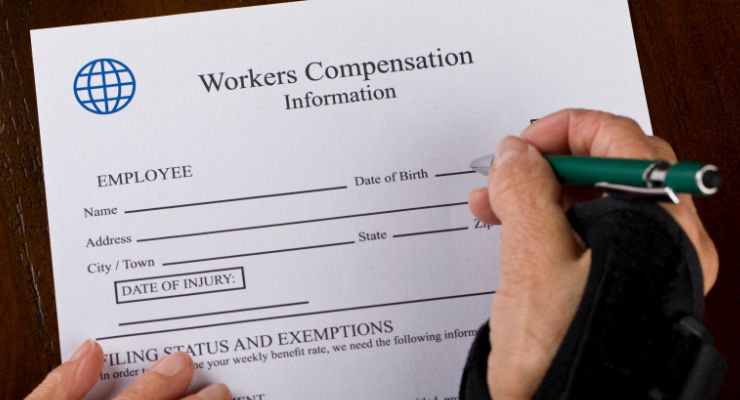Compton Workers’ Compensation Attorney
Compton, California, like all other cities in the state, has a workers’ compensation system in place to provide benefits to employees injured or ill from their job. These benefits include medical expenses, lost wages, and disability payments. Workers’ compensation is mandatory for most employers in California and is designed to protect employees from the financial burden of workplace injuries or illnesses. It also helps employers avoid costly lawsuits related to work-related injuries or illnesses. If you are an employee in Compton and have been injured at work, you may be eligible for workers’ compensation benefits.
At Pratt Law Corporation, our experienced workers’ compensation attorneys have represented injured employees in Compton for years. We understand the complexities of California’s workers’ compensation laws and will work hard to ensure you receive the full compensation you are entitled to. We will help you understand your rights, file all necessary paperwork, and represent your best interests in negotiations with your employer and their insurance company. We will also provide legal advice on issues related to workers’ compensation, such as appealing a denied claim, appealing an unsatisfactory settlement offer, and seeking additional benefits.
The attorneys at Pratt Law Corporation are dedicated to providing personalized legal service and achieving the best possible outcome for our clients. We are committed to helping injured workers in Compton receive the compensation they deserve. If you have been injured at work, don’t hesitate to contact us for a consultation today. We’ll help you understand your rights and guide you through seeking workers’ compensation.

What Are the Most Common Compton Workplace Injuries?
- Sprains and strains. These injuries occur when a muscle or ligament is stretched or torn. They are common in jobs that involve repetitive motions, heavy lifting, or awkward postures. These injuries can range from mild to severe and take a while to heal. They can also lead to chronic pain and loss of mobility if not treated correctly.
- Cuts and lacerations. These injuries occur when a sharp object cuts or punctures the skin. They are common in jobs that involve using knives, saws, or other sharp tools. These injuries can range from minor to severe, depending on the cut’s depth and the injury’s location. They can also lead to infections if not treated properly.
- Fractures and broken bones. These types of injuries occur when a bone is broken or cracked. They are common in jobs that involve heavy lifting, falling from a height, or being struck by a heavy object. These injuries can range from minor to severe, depending on the location and severity of the break. They can also lead to chronic pain and loss of mobility if not treated correctly.
- Burns. These injuries occur when heat, chemicals, or electricity damage the skin or other tissues. They are common in jobs that involve working with hot surfaces, chemicals, or electrical equipment. Burns can range from mild to severe and can cause scarring and disfigurement if not treated properly.
- Head injuries. These types of injuries occur when the head is struck or bumped, causing damage to the brain or other parts of the head. They are common in jobs that involve falling from a height, being hit by a heavy object, or being involved in a vehicle accident. These injuries can range from mild to severe, leading to long-term cognitive and physical impairments if not treated correctly.
- Back injuries. These types of injuries occur when the muscles, ligaments, or disks in the back are damaged. They are common in jobs that involve heavy lifting, repetitive motions, or awkward postures. These injuries can range from mild to severe, leading to chronic pain and loss of mobility if not treated correctly.
- Repetitive motion injuries. These types of injuries occur when a specific movement is performed repeatedly, leading to damage to the tendons, muscles, and nerves. They are common in jobs that involve typing, assembly line work, and other repetitive tasks. These injuries can be debilitating and lead to chronic pain and loss of mobility if not treated correctly.
- Occupational diseases. These injuries occur when workers are exposed to hazardous materials, chemicals, or other substances that can cause long-term illnesses. They are common in jobs that involve working with dangerous chemicals or other hazardous materials. These illnesses can range from mild to severe depending on the type of exposure and can lead to long-term disability if not treated correctly.
These touch on just a few of the most common Compton workplace injuries that have impacted workers in the community. With such a wide range of potential injuries, it is crucial to be aware of the risks of participating in any work. This is especially true in scenarios where hazardous materials are present. To protect yourself, make sure you are aware of the potential risks associated with your job and adhere to any safety regulations that may be in place. By doing this, you can reduce your risk of becoming injured on the job and ensure that you have access to the necessary medical care if you are injured.
What Should I Do If I’ve Been Injured at Work?
If you’ve been injured at work, take immediate action to ensure that your rights are protected and that you receive the necessary medical treatment and financial compensation. Here are some steps you should take:
- Report the injury to your employer as soon as possible. Inform your supervisor or manager about the injury, including the date, time, and location of the incident, as well as the specific circumstances that led to the injury. Make sure to get written confirmation that your employer has been notified of the injury.
- Seek medical attention for your injuries. Even if your injuries seem minor, it’s important to seek medical attention as soon as possible. Not only will this help ensure that you receive appropriate treatment, but it will also establish a record of your injuries that may be necessary for your workers’ compensation claim.
- Follow your doctor’s instructions for treatment and recovery. Keep all the follow-up appointments and follow the medical treatment plan prescribed by your doctor. This will help you recover faster and demonstrate that you are taking your injury seriously and cooperating with your employer’s workers’ compensation insurance carrier.
- Keep track of any expenses related to your workers’ compensation injury. Keep a record of all medical bills, receipts, and any other expenses related to your injury, as well as any lost wages or other income you may have incurred as a result of your injury. This will be important documentation for your workers’ compensation claim.
- File a claim for workers’ compensation benefits. If workers’ compensation insurance covers your employer, you are eligible to file a claim for benefits. This will typically include coverage for medical expenses, lost wages, and other benefits.
- Follow the process and guidelines for the workers’ compensation claim. Be aware of the deadlines and requirements for filing the claim and submitting the necessary documentation. Make sure to comply with all the instructions provided by your employer or the insurance company.
- Consult an experienced workers’ compensation attorney. If you have difficulty obtaining benefits or have issues with the claim process, consider consulting with experienced Compton workers’ compensation lawyers. They will help you understand your rights, guide you through the process, and represent you in disputes or appeals if needed.
What Are the Qualities of a Strong Workers’ Compensation Claim?
A strong workers’ compensation case typically has the following key qualities:
- Timeliness. Timely reporting of the injury to the employer and filing the claim is essential. This ensures that the statute of limitations does not bar the claim and that the employer is given notice of the injury in a timely manner.
- Medical documentation. Strong medical documentation is crucial to support the injury, the need for treatment, and the extent of the disability. This can include doctor’s notes, diagnostic test results, and medical bills. The medical documentation should be detailed, consistent, and credible.
- Evidence of causation. The injury must be related to the worker’s employment. This means that the injury must have occurred in the course and scope of employment and that the conditions or actions of the workplace caused it. This can be established through witness statements, surveillance footage, or other forms of evidence.
- Cooperation. The injured worker must cooperate with the employer, insurance company, and medical providers throughout the claim process. This includes attending medical exams, providing necessary information, and following the treatment plan prescribed by the doctor.
- Representation. Having an experienced workers’ compensation attorney can greatly help in a successful outcome. An attorney will help you understand your rights, guide you through the process, and represent you in disputes or appeals if needed.
- Compliance. The worker and the employer must comply with the state laws and regulations regarding the workers’ compensation process. This includes filling out all necessary forms correctly, submitting them on time, and providing all required information.
- Reasonable settlement demand. The settlement demand should be reasonable and consistent with the injuries, medical expenses, and lost wages sustained by the worker. The workers’ compensation settlement demand should be based on the evidence and the applicable laws and regulations.
Why Are Workers’ Compensation Claims Sometimes Denied?
Workers’ compensation claims are denied for various reasons, and the laws and regulations vary from state to state. Here are some common reasons a claim might be denied in California:
- Lack of medical evidence. The insurance company may deny the claim if the medical documentation is insufficient to support the injury or the need for treatment. This can happen if the worker does not seek medical attention promptly after the injury or if the medical documentation needs to be more detailed and credible.
- Failure to report the injury in a timely manner. Claims may be denied if the injury was not reported to the employer within the required time frame. For example, in California, the employee must report the injury to the employer within 30 days of the occurrence of the injury.
- Lack of evidence of causation. The insurance company may deny the claim if there is not enough evidence to show that the conditions or actions of the workplace caused the injury. This can happen if the worker is unable to provide a clear and detailed description of the incident or if there is conflicting evidence regarding the cause of the injury.
- Failure to follow the treatment plan. The insurance company may deny the claim if the worker does not follow the treatment plan prescribed by the doctor. This can include failing to attend follow-up appointments, not following medication regimens, or not complying with the doctor’s instructions for recovery.
- Fraud or misrepresentation. Claims may be denied if the worker is found to have committed fraud or misrepresented the facts of the injury. This can include exaggerating the extent of the damage or making false statements about the cause of the injury.
- Pre-existing condition. California does not allow the insurance company to deny a claim if the injury or illness is related to a pre-existing condition if that condition was worsened by work-related accidents.
- Non-compliance with the laws and regulations. Claims may be denied if the worker or the employer fails to comply with the state laws and regulations regarding the workers’ compensation process. This can include failure to file the claim within the required time frame, provide the necessary documentation, or attend mandatory hearings or meetings.
It’s important to note that if your claim is denied, you have the right to appeal and present evidence supporting your claim. An experienced workers’ compensation attorney can assess what happened, evaluate the evidence, and provide advice on how to proceed. They can also represent you in any hearings or appeals necessary for a successful outcome.
Top 10 Reasons to Hire a Workers’ Compensation Attorney
- Navigating the legal maze. A workers’ compensation attorney will help you navigate the complex legal system and ensure that your rights as an injured worker are protected. This includes understanding the laws and regulations specific to your state and how they apply to your case, filing your claim promptly, and meeting all necessary deadlines.
- Building a strong case. An attorney will help you gather and present evidence to support your claim, including medical documentation and witness statements. They can also help you identify and collect other evidence relevant to your case, such as work-related emails, texts, and other communications.
- Negotiating with insurance companies. They can negotiate with insurance companies to ensure you receive fair compensation for your injuries and lost wages. This can include negotiating a settlement or working out a payment plan that meets your needs and ensures that you can cover your medical expenses and lost wages.
- Appealing denied claims. They will help you appeal a denied claim and represent you in court if necessary. This can include gathering additional evidence, building a stronger case for your claim, and arguing in front of a judge or administrative law judge.
- Long-term implications. They will help you understand the long-term implications of your injuries and assist you with obtaining benefits such as vocational rehabilitation or permanent disability benefits. This can include helping you understand how your injuries may impact your ability to work in the future and what types of benefits may be available to help you cope with those implications.
- Understanding the process. They will help you understand the process of filing a claim and what documentation is required. This can include guiding the types of documentation that you will need to submit with your claim, such as medical records and proof of lost wages.
- Available benefits. They will help you understand the different available benefits, such as temporary disability benefits, permanent disability benefits, and medical expenses. This can include helping you understand how to apply for these benefits and what evidence you will need to provide to be eligible for them.
- Meeting deadlines. They can also help you understand the time limits for filing a claim and how to file a claim on time. This can include helping you understand the statute of limitations for your case and what steps you need to take to ensure that your claim is filed within that timeframe.
- Maximizing compensation. A workers’ compensation attorney can work to maximize the compensation you receive for your injuries and lost wages. This can include identifying all potential sources of compensation, such as workers’ compensation and third-party claims, as well as negotiating and fighting for a fair settlement or award on your behalf. They will ensure you are not leaving any stone unturned and get you the maximum compensation possible.
- Settling out of court. They will help you understand the process of settling a claim and the steps involved in settling a claim out of court. This can include guiding the types of settlement agreements that may be available and what evidence you will need to provide to be eligible for them.
Contact Pratt Law Corporation Today
No matter the circumstances of your industrial accident, you don’t want to go through it alone. Contact an experienced workers’ compensation attorney at Pratt Law Corporation to get the legal advice and representation you need. Our knowledgeable team is here to help you understand your rights and how to protect them best. Contact us today to schedule your initial consultation. We look forward to working with you soon.




